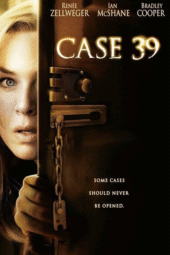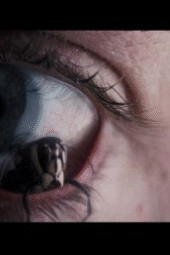Case 39 is a psychological horror-thriller that dives deep into the dark unknown of child abuse, supernatural forces, and the danger of good intentions. Directed by Christian Alvart and starring Renée Zellweger, the film takes viewers on a chilling journey that lingers long after the credits roll.

The story centers around Emily Jenkins (Renée Zellweger), a dedicated social worker overwhelmed by her caseload. She becomes particularly invested in the case of 10-year-old Lilith Sullivan (Jodelle Ferland), who seems to be the victim of horrific parental abuse. Emily intervenes just in time, saving Lilith from a gruesome fate at the hands of her parents. With nowhere else to go, Lilith is placed temporarily in Emily’s care — and that’s when things begin to spiral into terror.

What initially seems like a triumph of compassion slowly turns into a waking nightmare. Strange deaths, eerie behavior, and a deepening sense of dread surround Lilith, revealing that the real horror may not have been her parents after all.
Zellweger brings a strong emotional core to the film, portraying a woman torn between her profession and her sanity. But it’s Jodelle Ferland’s haunting performance as Lilith that truly steals the show. Her chilling presence and subtle manipulations make you question what’s real and what’s malevolent illusion.
Visually, Case 39 uses shadow and suspense effectively, creating tension without relying on cheap jump scares. The film leans into psychological horror more than gore, making it a suspenseful watch for fans of eerie thrillers.
While not a critical darling, Case 39 has gained a cult following over the years. It’s the kind of movie that invites debate: Was it a supernatural tale or a metaphor for psychological trauma? Either way, it serves as a reminder that sometimes, trying to save someone can open doors best left closed.